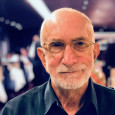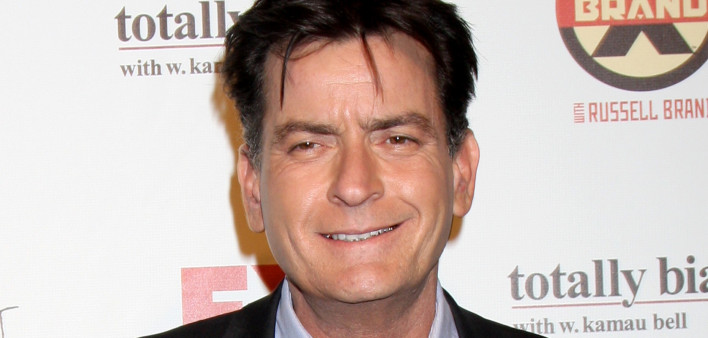First, some disclosure. I’ve been telling my own HIV story for some time. It’s not a particularly remarkable one, as those of long term survivors go. Diagnosed in 1993 while working in the upper echelons of corporate banking. Worked until I could no longer hide it, which wasn’t very long. Saw “Philadelphia” starring Tom Hanks and was empowered to tell my story to almost everybody. Enrolled in the clinical trial of Saquinavir, the first protease inhibitor, in 1996. Regained health. Became an advocate. Twenty years later retired. Became a borderline grumpy old man.
Despite its lack of real drama – OK, the Tom Hanks connection is kind of a novel twist and accounted for thousands of hits when I posted the story on social media – I’ve told my own story many times, in person and in the media. I’m privileged to be able to do so with few negative consequences. ALL our stories are important is my belief. Whatever we have been through, however much or how little we have acquired in our life’s journey, from chattels to criminal convictions, shouldn’t make a lot of difference. That’s why many AIDS service organizations maintain Speakers Bureaus, training people living with HIV of all stripes to be effective storytellers. It’s good for those of us who do this in terms of our own empowerment. It’s good for society too, however local in scope.
Then there are the celebrity HIV stories. It’s a marker of our times, of course, that a celebrity revealing they have what is now a chronic manageable condition is still newsworthy – but it is. Even my heart skips a beat when I read one. I’m happy that the topic is getting some airtime that mine can’t. Celebrities coming out with HIV can take the number of people who hear our messages to a whole new level. Their stories shape how a mass audience sees us. Mostly that’s been good, though for some, like Charlie Sheen, that’s debatable. Like any educators, you have to know your stuff. Charlie didn’t and created a minor disaster.
There is no doubt too that the stakes can be high for someone in the public spotlight to come out. It is still, I believe, an act of individual bravery. When those in the spotlight use their visibility to become a key advocate for U=U, for example, as ABC newscaster Karl Schmid did this past year, that’s even more commendable. The community rightly showers such acts with praise.
But then, he said wistfully, there are us, ordinary people with HIV sharing our stories for decades, even at a time when disclosure was fraught with far more challenges, with far more likelihood of a backlash, than today. How do we feel when the well-known are showered with praise for doing something we take for granted. Admiration, annoyance, a little of both? I wanted to find out so I took to Facebook to ask my friends this: “Do the ‘celebrity’ coming out stories announcing they are poz have any more intrinsic worth than the story of a mother in North Bay who wants to have a baby or the gay guy in Newfoundland who can’t get a date?”
Some answers illustrate there is annoyance out there - Charlie’s name often comes up, for example. Others attest to the merit of local stories even though they may reach a much smaller audience. Some think our home-grown stories do more good, in fact.
Here is a selection of some of the views expressed. They make for interesting reading.
“I keep asking myself why are stories of others much more valid than those who are mostly impacted by HIV or lost lives or time into long term survivor complex issues.”
“The trouble with celebrities is that they give their own truth and Jo/e Public believes that what they say is true for all of us. Look at Charlie Sheen and the embarrassment his coming out as poz involved. While celebs can get the issue talked about, I think we’re better off in the long run with many small acts of coming out by “ordinary” people.”
“I believe that people relate more easily to stories from one of ‘us’, rather than one of ‘them’.”
“I think a celebrity coming out can point attention to the problem that it might not otherwise get. I do think that, say, Charlie Sheen’s coming out as HIV-positive had more impact than mine many, many years earlier.”
“Coming out on a local level can be quite powerful. When a poz person speaks, others listen. Yes, it’s great to have representation with celebs, but local representation is important, if not even more.”
“The celebrities get more attention and provide recognizable PR value, and their stories have their own difficulties. But it’s stories of so called ‘everyday people,’ people who are just trying to make their lives make sense, without many safety nets, that are more powerful, tangible, and relatable, and seem more real to me.”
“We all know the value of those celebrities early on whose statuses and deaths garnered the much needed publicity on the impact of AIDS. Rock Hudson is a prime example.”
“I think that coming out in local community is extremely brave and fraught with risks. To be sure this has the potential to have a profound impact on people when they realize it is a local phenomenon and issue. By the same token and on the other hand the celebrity disclosures help to support the local disclosures.”
“….whether they shouted it from the rooftop or whispered it in a loved one’s ear, they are all heroes that have helped raise awareness and fight the stigma.”
Bottom line? Done well, the informal poll suggests, there is a positive impact from both. I agree.
Undeniably celebrity statements have a potentially huge impact by virtue of the size of the audience. But let’s acknowledge the immense potential for good of a personal story told well, either in public or on social media. As one of my respondents said “If more of us were open about being poz it would bring home the fact that HIV is just part of life, and the only way we’re different is in that we have a little passenger that needs knocking on the head.”








Comments
Comments